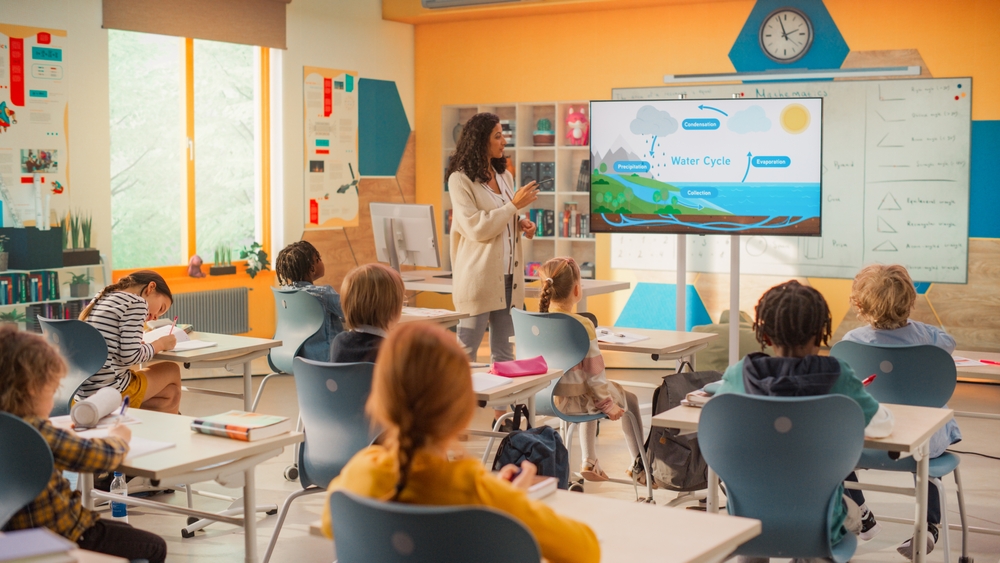In recent years, the integration of gamified elements into educational settings has gained traction as an innovative approach to enhancing student motivation and knowledge retention. Gamification, the application of game design principles in non-game contexts, offers a dynamic and interactive way to engage learners, tapping into intrinsic motivators that traditional teaching methods may struggle to activate.
According to a study by Gartner, gamification can increase engagement by up to 60% and improve learning outcomes by up to 30%, highlighting its effectiveness in educational environments (Garter, 2019)1. Gamification leverages elements such as points, badges, leaderboards, and progression systems to transform learning experiences into engaging activities that mimic the structure and dynamics of games. By introducing challenges, rewards, and a sense of accomplishment, gamified learning environments aim to capture and sustain a student’s attention using familiar methods, thereby fostering a more consistent level of engagement with lesson content.
Enhancing Student Motivation
In December, Harrow Hengqin launched its first Digital Citizenship week. The theme was E-safety and responsible digital practice. Throughout this week, gamified learning was implemented using various resources, including Google’s ‘Become Internet Awesome’ curriculum, which features the game-based learning platform ‘Interland’.
Interland provides platform games similar to Super Mario, racing games, quizzes, and mazes, offering diverse opportunities for students to learn about online safety while having fun. By integrating gamified learning experiences, students were more actively engaged and retained key concepts about responsible digital citizenship.
Another platform that effectively integrates gamified learning experiences is iDEA.org.uk. iDEA (Inspiring Digital Enterprise Award) aligns with gamification principles in education and covers six categories:
- Worker: Developing essential digital workplace skills like office software proficiency and time management through interactive challenges.
- Citizen: Learning about digital citizenship, online safety, and ethical considerations in the digital world through engaging scenarios and quizzes.
- Maker: Exploring coding, graphic design, and digital storytelling, building technical skills.
- Entrepreneur: Investigating entrepreneurship and digital marketing, making strategic business decisions in virtual simulations and case studies.
- Gamer: Delving into game development, game theory, and the educational value of gaming through game-based assessments and challenges.
- Independent: Fostering autonomy and self-regulation skills with topics like digital health, online learning strategies, and personal development in a gamified environment.
By gamifying the learning experience across these categories, students actively engage and take ownership of their learning, tailoring their educational journey to align with their career aspirations and personal interests.
iDEA utilises gamification elements such as badges, points, and levels to incentivise progress and achievement, fostering a sense of accomplishment and motivating students to continue exploring and learning within the platform. This holistic approach to learning enhances students’ digital literacy while fostering critical thinking, problem-solving, and creativity skills across various domains. A survey conducted by the Entertainment Software Association (ESA) supports this. It revealed that 97% of teachers believe games can effectively engage students with learning materials, and 76% reported that using digital games increased student motivation (ESA, 2019)2.
Considerations for Effective Implementation
Effective implementation of gamification in education requires careful consideration of several factors. Firstly, educators must align gamified activities with learning objectives and curriculum standards to ensure they support academic goals and promote meaningful learning outcomes.
Secondly, gamified systems should be intuitively designed and accessible to accommodate the varying needs of student cohorts. Clear instructions, consistent feedback, and appropriate scaffolding are crucial components of successful gamified learning environments. It is also important to consider the source of gamified learning platforms. Opting for resources from reputable educational brands like Google ensures that the construction of the gamified learning system adheres to the aforementioned key points.
Moreover, educators should balance intrinsic and extrinsic motivators within gamified activities. While rewards and incentives can enhance initial engagement, they should not overshadow the intrinsic value of learning itself. Emphasising mastery, autonomy, and purpose can help foster sustainable motivation that extends beyond external rewards.
Gamification in education offers a novel approach to enhancing student motivation and retention by leveraging the dynamic of games. By incorporating elements of challenge, achievement, and progression, gamified learning environments stimulate intrinsic motivation, promote active engagement, and improve knowledge retention.
However, effective implementation requires careful consideration of pedagogical goals, student needs, and design principles to ensure alignment with learning objectives and promote meaningful learning experiences. By striking a balance between intrinsic and extrinsic motivators and creating immersive, accessible learning environments, educators can harness the potential of gamification to empower students and foster a lifelong love of learning.
Education Technology That You Might Be Of Interest:
Get a special discount by quoting code AISLMALL during CHECKOUT.
Across Cultures - Learning Village Blended Learning for EAL & Multilingual Learners
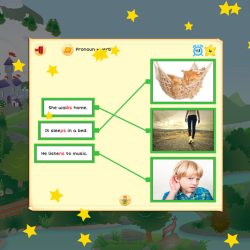
The Learning Village is an image-based English as an Additional Language (EAL) programme for pupils in English-medium schools. Learning Village, a blended vocabulary, language structure and reading programme for EAL, low-level literacy and SEND learners from 6-11 and 12-16 years old.
Book Creator
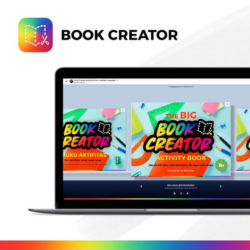
Book Creator was established in 2011 and is based in the UK. Book Creator is a versatile digital tool that allows users of all ages and abilities to create interactive multimedia books. It fosters creativity, collaboration, and digital literacy, supporting various learning styles. With over 2 million books created monthly, it enhances student engagement and learning.
BOOX – E ink tablet Series

BOOX has more than 10 years of experience in developing eye-protection e-books to help you learn more about different types of e-book products. BOOX – E ink tablet Series ; Go Color 7″ (Black) (HKD1,998 with case) Original: HKD2,498 ; Go 10.3 ($2998 with case) Original: HKD3,498 ; 10.3” Tab Ultra C Pro ($4,998 with case) Original: HKD5,498
Cathoven – Language Hub
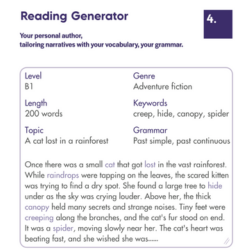
Founded in 2022, Cathoven is a smart assistant tailored for language educators, helping them create level-appropriate lessons and exams, assess and score student work, identify weaknesses, and provide actionable feedback. Used by top institutions like Columbia Uni, Cathoven was ranked the second-best AI in Education project by QS after Duolingo.
Earth Cubs Environmental Content
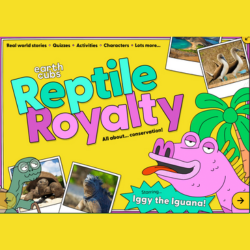
Earth Cubs offers free, award-winning content on sustainability, climate change, and the environment. Through positive storytelling, it inspires young children on topics like renewable energy and equality, aligning with the UN’s Sustainable Development Goals, and is supported by mission-aligned organizations.
ELimu - Learning Games
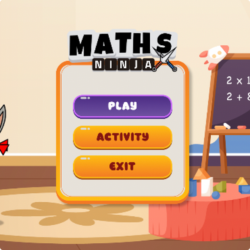
eLimu World is an interactive learning platform designed for kids aged 4-8, offering a range of fun, inquiry-based learning (IBL) games that help children learn better and faster. Our solutions cover key subjects like math and science, using a gamified approach that keeps kids engaged while building essential skills.
KAZ – Specialised and Accessible Touch-Typing Software
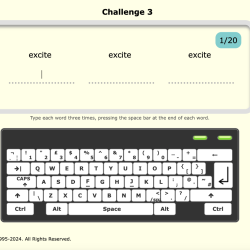
KAZ’s inclusive touch-typing course for home and schools supports mainstream, neurodivergent, hearing-impaired, and visually impaired learners. It’s an online tutorial with minimal teacher intervention, and structured lesson plans are available. Learners can access it from school or home on Macs, PCs, Chromebooks, and iPads.
Nova AI Mentor: Redefining Personalised Learning
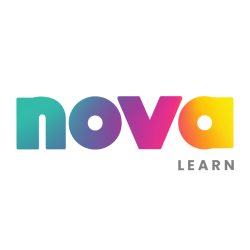
Novalearn Limited is an EdTech company transforming education by seamlessly integrating machine learning, studio-produced edutainment, and quality STEAM education aligned with international K-12 curricula. Enhance school-wide performance with advanced analytics and intelligent recommendations for students. Customisable to your school’s needs and rubrics. Supportive adaptive learning system. Automatic generated reports for teachers and principals.
School365 - SaaS platform
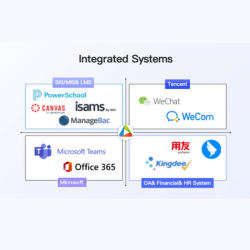
School365 is a SaaS platform designed for K12 international schools in China, offering seamless integration of data and processes. It provides administrators with powerful insights and efficient management tools, while its customizable design ensures scalability to meet the unique needs of schools.





